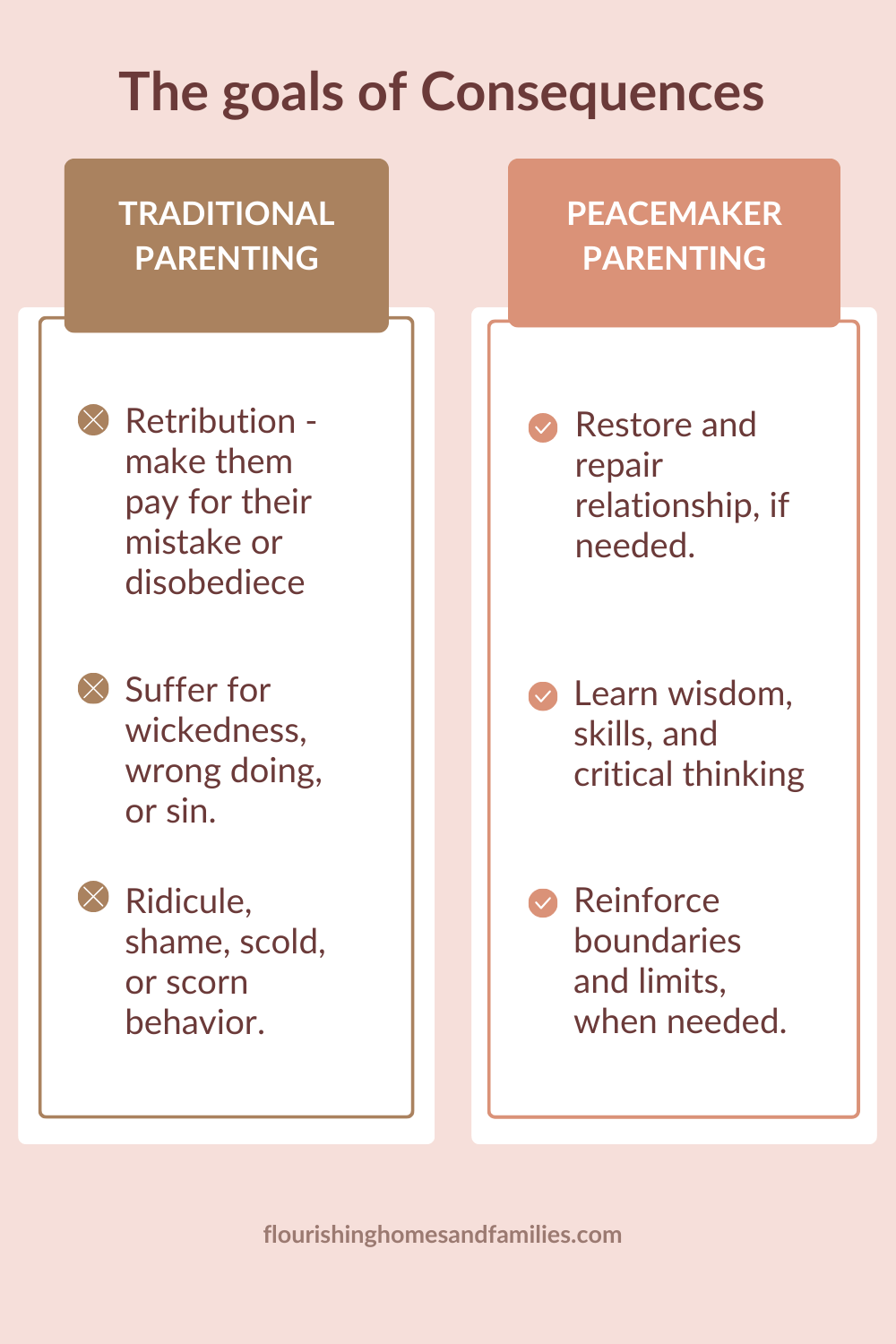
WHAT IS PEACEMAKER PARENTING?
Peacemaker Parenting is a model for parenting that is rooted in the teachings of Jesus and backed by modern neuroscience. It equips parents and caregivers to develop deeply connected and secure relationships with their children, and empowers them with tools and strategies to lead and guide their families with Jesus, and His grace, at the center of their homes and families. You can learn more about Peacemaker Parenting here.
WHAT ARE THE PEACEMAKING GOALS OF CONSEQUENCES?
Let's lay the foundation for consequences in Peacemaker Parenting. In the old parenting paradigm, you may have thought of consequences as a way to "teach them a lesson", make them feel as bad as they made someone else feel, or as a punishment for bad behavior. We sure did! We viewed consequences as a way to correct sin right here, right now, so that they'll never do it again! Right? Wrong.
Negative consequences can be highly effective at teaching children what not to do. They use a child’s fear/survival response in the brain to make associations between poor choices/bad behavior and negative stimuli. The problem is: the child isn’t actually learning anything. In the brain, it’s simply behavior adaptation for survival. And the skills, wisdom, perspective, critical thinking, emotional regulation, and alternative actions aren’t being developed or taught with negative consequences.
In Peacemaker Parenting, consequences serve a different purpose altogether. They are not intended to make a child suffer, in other words, they're not about retribution. And they’re not even reactionary. As much as we're able, consequences are responsive and proactive:
The three primary goals of consequences are:
When we shift our view of consequences from punitive to edifying, it completely changes how we interact with our children when consequences are needed.

Lastly, consequences are primarily about equipping for the future, not about punishing the past. You can learn more about future-facing consequences here.
YOU MIGHT ALSO LIKE:













0 Comments